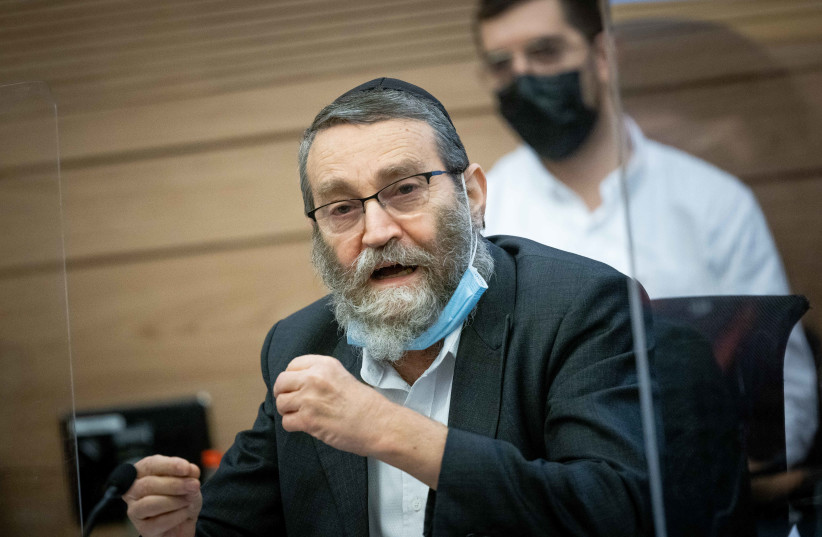The Lithuanian faction Degel Hatorah, one of the two factions that make up the Ashkenazi haredi party United Torah Judaism, will meet on Sunday in order to discuss what it views as insufficient funding for its private education systems in the national budget for 2023-2024 that the cabinet approved on Friday, sources in the party confirmed.
According to the party's newspaper, Yated Ne'eman, the budget includes a "notable and significant improvement" in a number of parameters, but is still lacking in funding that was promised as part of the coalition agreements.
These include full funding for private school systems, funding for reducing prices of public transport and others. These were issues that were "explicitly agreed upon" prior to last week's budget meetings, but Prime Minister Benjamin Netanyahu "ignored them" and did not bring them up during the meetings, according to the paper.
UTJ's Gafni to 'ensure coalition agreements are respected'
The party intends to use its influence in the Knesset, chiefly in the Knesset Finance Committee headed by Degel Hatorah leader MK Moshe Gafni, to make sure the coalition agreements are respected. In addition, the party intends to set up a team to examine how this should be done, according to the paper.
Senior figures in Degel Hatorah even threatened not to support the budget in the Knesset if the issue is not taken care of.

The issue of state funding for private haredi schools was central during the election campaign and post-election coalition negotiations. During the campaigns, the issue nearly brought to a split between UTJ's two factions, after parts of the Hassidic Agudat Yisrael faction agreed to enter a new Education Ministry program that promised increased funding in exchange for requisite teaching of "core studies'' (chiefly English and math) with ministry oversight. This came to be known as the "Belz Arrangement," and Degel Hatorah viewed it as an unacceptable breach of the independence of haredi education.
Then-opposition leader Netanyahu promised Agudat Yisrael that a government under him would provide similar funding without the same demands for core studies.
UTJ argued at the time that the current state of funding was against the law. The law requires that private haredi schools receive 55% of the state funding that public schools receive. However, the state in the past 20 years signed a number of salary agreements with teachers' unions that increased funding for state schools based on certain pedagogical criteria. These agreements were not offered to the haredi school systems, and thus the current situation was that the de-facto funding of private haredi schools was below 30%.
The Likud and UTJ agreed in their coalition agreement that the state would raise the private school systems to 55% of what state schools receive today, despite not demanding the same criteria.
Such a rise in funding is costly, and the sides agreed during talks ahead of the budget proposal that the schools would receive 60% of the raise in funding on the 2023-2024 budget. However, this was not included during last week's meetings, and it was unclear how high that number would be, according to a source in the party.
The issue currently is viewed as a problem that needs to be solved, and if not could balloon into a crisis if not solved quickly, the source said.
